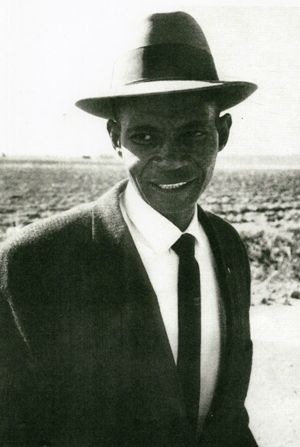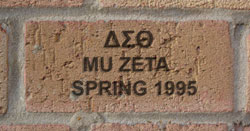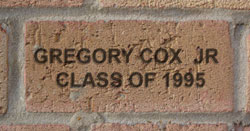Carl Cowan Scholarship Fund
The Carl Cowan Scholarship Fund was made possible through initial donations and contributions from individuals and businesses after black students and faculty members in the early 1970s sought to identify additional funding sources for black students. The endowment was originally named the Minority Scholarship and Assistance Fund. In 1983, the name of the endowment was changed to the Carl Cowan Scholarship Endowment Fund and is open to all students.
Donate to the Carl Cowan Scholarship Fund.
Dr. Jane S. Redmond Scholarship Fund
Dr. Redmond served the University of Tennessee for almost 30 years in the roles of Assistant Vice Chancellor of Student Affairs, Director of Minority Student Affairs, and Director of the Women’s Center. She was the guiding force behind the development, creation, and construction of the three million dollar, 13,700 square feet, state-of-the-art Black Cultural Center that opened in June 2002. The Dr. Jane S. Redmond Scholarship Fund has been named in her honor to benefit students at the University of Tennessee.
Contribute to the Dr. Jane S. Redmond Scholarship Fund.
Frieson Black Cultural Center Endowment
Formerly known as the Charlie Lemmons Endowment, the Frieson Black Cultural Center Endowment helps the Office of Multicultural Student Life provide additional cultural programming, academic support, diversity workshops, peer mentoring, and leadership development opportunities based out of the Frieson Black Cultural Center.
Support the Frieson Black Cultural Center Endowment.

Charlie Lemmons
Established in 1976, the Black Cultural Center was located in a university-owned residence at 812 Volunteer Boulevard, where it operated for more than twenty years. In 2002, the current facility was opened at 1800 Melrose Avenue. In the heart of the campus, it is a vibrant, thriving 13,700-square-foot facility that houses a computer lab, a multipurpose room, and study and gathering spaces for students and the campus community to learn, share ideas, and discuss experiences.
On August 18, 1908, Charlie Lemmons was born to George Lemon, Sr. and Emma McCullough Lemon in Greenwood, Mississippi. He was a second-generation freed slave. His grandparents were slaves and were freed by the Emancipation Proclamation. As an energetic and industrious child, he survived the loss of his mother at age ten, and father at age twelve. Charlie cared for his younger brother George Lemons, Jr. and sustained by taking odd jobs at community stores. In his early life, he was educated in the public schools of Leflore County, Mississippi.
In his early manhood, he moved to Taylor, Mississippi, where he met and married Vera W. Lockhart on March 5, 1932. To this union, five children were born. Charlie and Vera moved to Memphis, Tennessee in 1945. He worked at Firestone Tire and Rubber Company before becoming an International Harvestor employee. During his tenure at Firestone Tire and Rubber the company sustained a closure. Without steady work, Charlie acquired some electrical and plumbing skills and did various odd jobs to provide for this family. He refused to accept any kind of public assistance or charity.
Charlie Lemmons was a natural leader, taking on an active role in the labor union that represented workers at International Harvester, as well as being a deacon in his church. He was a very strong advocate of education, making sure that each of his children had an opportunity to attend college. Of his three surviving children, two became public school educators with master’s degrees, while one is a veteran of the Vietnam War.
Charlie spent a great deal of time with his first grandchildren, twins, Ronald and Donald Frieson, both graduates of the University of Tennessee, Knoxville. Known to them as ‘Papa Charlie,’ Lemmons provided an endless array of philosophy, practical teachings, and wisdom that shaped their lives. Any level of perceived success is directly credited to those early teachings and mentoring provided by what the twins believe is “the smartest man we’ve ever known.” Ronald Frieson, founder of the Charlie Lemmons Endowment, believes this a good way to preserve the memory of such an incredible individual, while also spreading the impact of his legacy. It is his desire to share with others, the benefits of a life well lived.
 Dream to Reality Courtyard Project
Dream to Reality Courtyard Project
The University of Tennessee, the Frieson Black Cultural Center, and the Office of Multicultural Student Life call on all alumni and friends of the university to get involved in the Dream to Reality Courtyard Brick Project.
Participants in the Dream to Reality campaign will have their names inscribed on a brick in the center’s courtyard. The bricks may be purchased at the following costs and can be inscribed with three lines of text up to 14 characters per line: Current students $150, Student organizations $250, Alumni $300. Contributors who give $1000 or more will have their names engraved on a plaque which will be displayed in the lobby of the center. Any private gifts received above the cost of the bricks will be placed in the Frieson Black Cultural Center Endowment Support Fund.
 The brick project is:
The brick project is:
- A perfect graduation present showing the name of the student and his or her graduation year
- A great opportunity for campus organizations to show their support
- A unique opportunity for small and large businesses to show their support of the university’s programs
- A perfect way to honor a former UT alumnus
If you would like to participate in the Dream to Reality Courtyard Brick Project, please fill out the form completely and mail it to Multicultural Student Life, 1800 Melrose Avenue, Knoxville, TN 37996-4200.
For more information, call the Office of Multicultural Student Life at 865-974-6861.